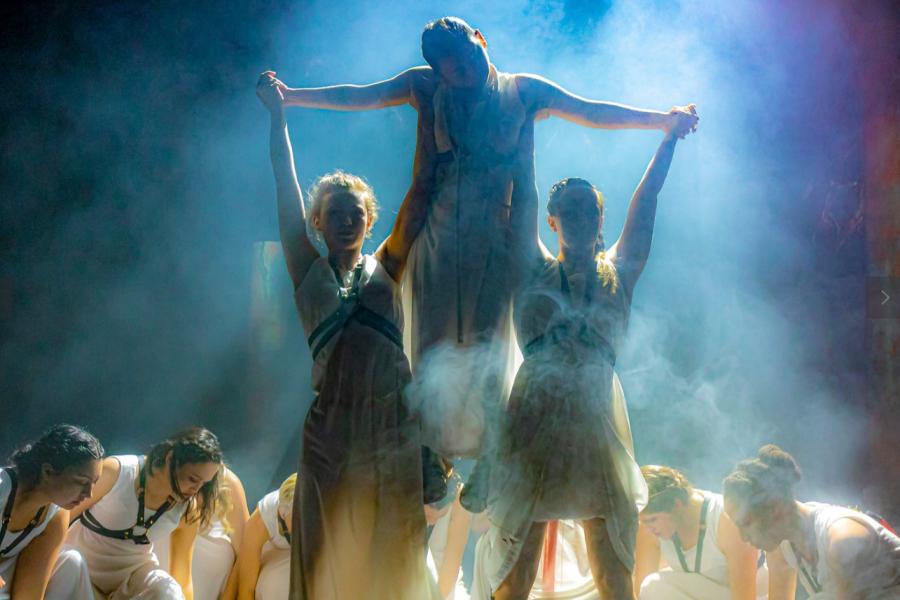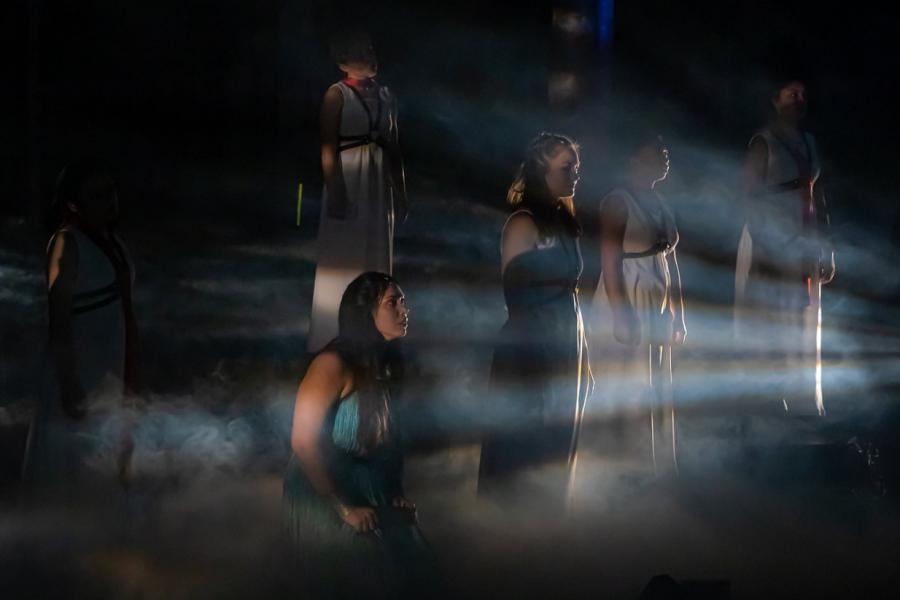M.F.A. emphasis in Lighting Design
*The M.F.A. Lighting Design program recruits new classes every other year. We will accept applications beginning October 2026 for admittance to the 2027-28 academic year.*
Lighting Design Program Information
Below is an overview of the lighting program at UC Irvine. To dive deeper into the students, alumni, faculty, staff, and venues, please visit our lighting program website at https://sites.uci.edu/lightingdesign/.
The lighting design program at UC Irvine is dedicated to the professional training of advanced students interested in developing their talents and skills in the art and technology of lighting design. This education is uniquely designed to prepare students for careers in theatrical lighting, entertainment lighting, concert lighting, and architectural lighting.
The program provides a balanced education during the three years of graduate study by combining the creative, practical, theoretical, digital, scientific, philosophical, and psychological aspects of the nature of light. Courses are offered in these various areas of study to assist the student in becoming a well-rounded lighting artist and practitioner. The multi-disciplined program encourages students to explore many areas of lighting, allowing them to discover their own area of expertise and to focus on a career in lighting design that is well suited to their interests and talents.
The UC Irvine program provides the student with a balanced exposure to both the creative and technical elements of lighting. Course topics include lighting composition, plotting techniques, automated lighting, digital visualization and documentation, history of lighting and illumination, architectural lighting, verbal and visual presentation techniques, lighting technology, system design and consulting, and lighting business management. The design program also offers the most current training in digital design including 2d/3d Modeling, Scenic & Lighting Rendering, and Digital Light Plot Creation.
Training is provided not only in the specialized area of lighting, but in dramatic literature, the development of theatre, concepts and collaboration, and script analysis. These courses help the student to mature intellectually as an artist in the lighting community.
The process of lighting design is emphasized as much, if not more, than the results of lighting design. Students participate in a series of collaboration and production meetings prior to developing design plans. These meetings ensure communication between all production team members. Students are coached by the faculty in both verbal and visual presentation skills. Emphasis is given to preparing a lighting design plan that will allow the production to achieve its greatest creative potential.
Training is based in class work, multiple design opportunities (both on- and off-campus), assistant design assignments, critique and observation, and technical crew involvement. Most important to the program is the direct guidance and critical evaluation provided by UC Irvine's two award-winning lighting design faculty. Committed and talented students are treated as members of a design community with individual attention given to their creative growth and problem solving ability. Developing artistic and intellectual sensibility and professional maturity are the leading goals of the UC Irvine lighting design program.
Through UC Irvine's extensive network of lighting design alumni, graduate students are connected to leading theatrical production companies, entertainment design groups, architectural lighting design studios, and major theme park design offices. Future employment opportunities are enhanced by the many industry contacts provided throughout the student's residency.
By emphasizing a holistic approach to lighting over the period of three years, students are prepared to graduate with a solid foundation that will allow them to be gainfully employed as lighting professionals.


